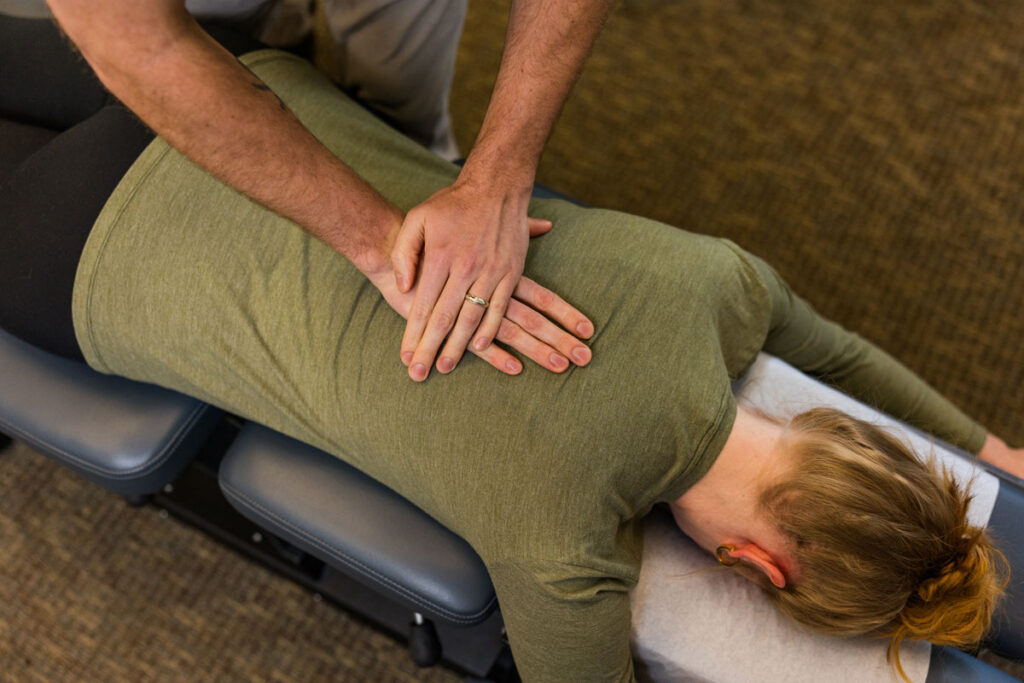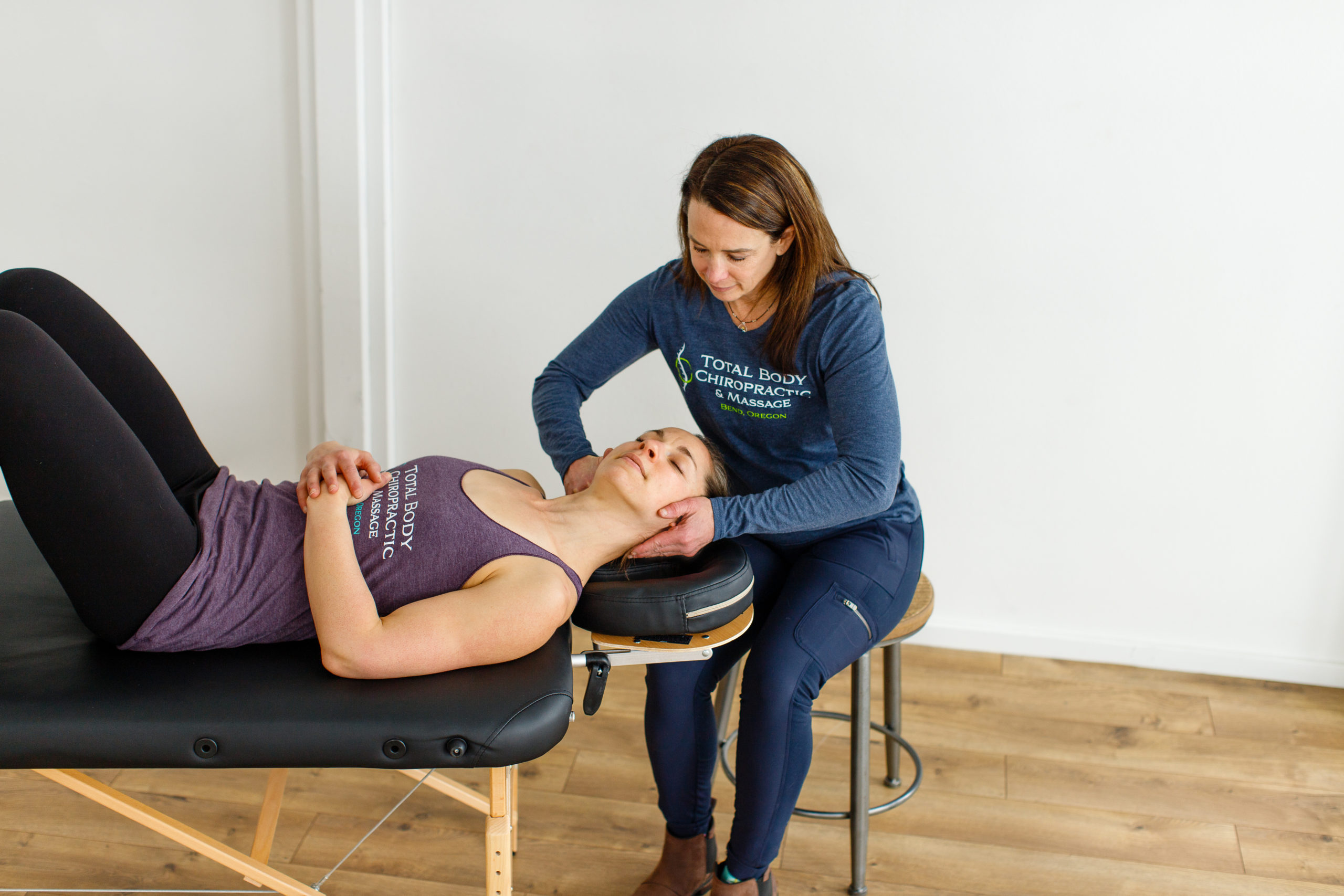Can a Chiropractor Fix a Herniated Disc?
A spinal disc issue is one of the leading causes of neck and lower back pain. Home remedies can help you manage its symptoms, but you may still need other treatments to help you recover fully from your physical ailment. You must see a chiropractor if you suffer from chronic back discomfort caused by a bulging or damaged disc.
So, how can chiropractic care help with your herniated disc? Chiropractic care is a healthy, non-invasive approach that seeks to treat the cause of your discomfort rather than its symptoms. It adjusts your spine to relieve pressure on the damaged nerves and cures disc protrusion using specific procedures. As a result, it reduces your pain and restores your mobility, allowing you to experience fewer side effects.
What is a Herniated Disc?
A herniated disc happens when the softer inner nucleus pushes through a tear in the outer annulus. If this rupture puts pressure on a nerve, symptoms may develop. Many people seek a chiropractor to treat their symptoms because this spine-related condition can be excruciatingly painful and result in varying degrees of numbness or weakening. Sometimes, a herniated disc is also called a ruptured or slipped disc.
When a disc bulges out from the spine, it results in a herniated disc. Rubbery pads or spinal discs support your spine. Dislocation or resting against a nerve can cause discomfort and other health issues.
Herniated discs can happen for various reasons, including sports injuries, inappropriate stretching or twisting, a car accident, using the wrong lifting techniques, or aging. Regardless of the underlying cause, chiropractic care relieves the excruciating pain herniated discs produce and may even help avoid surgery or other medical procedures.
Symptoms of a Herniated Disc

The position and size of the herniated disc, and the herniation itself, all influence the symptoms. You could feel no pain or a minor backache if the herniated disc isn’t pushing on a nerve. However, if pressure is placed on a nerve, the area of the body where the nerve travels may experience pain, numbness, or weakening. Usually, a lower back pain episode or a long history of intermittent low back pain precedes a herniated disc.
Lumbar Spine
Herniated lower back discs frequently cause sciatica (radiculopathy). Pain, tingling, burning, and numbness can extend from the hip to the leg and occasionally into the foot when one or more nerves that comprise the sciatic nerve are compressed. Usually, it affects only one side—the left or right.
Several people describe this discomfort as being acute and electric shock-like. Standing, moving, or staying still could make it worse. Pain frequently gets worse when you straighten the affected side leg. Low back pain can accompany leg discomfort, but with acute sciatica, the leg pain is often worse than the low back pain.
Cervical Spine
Cervical radiculopathy, or neck nerve compression, causes symptoms such as tingling or numbness in the arm or shoulder and dull or severe pain in the neck or the area between the shoulder blades. Specific neck postures or motions can worsen the pain.
Arm or Leg Pain
You may experience discomfort in your hips, thigh, and calf and lower back pain if your herniated disc is in your lower back. Your foot may also be bothering you in some areas. Your shoulder and arm will often hurt the most if you have a herniated disc in your neck. Coughing or sneezing may cause this pain to travel to your arm or leg.
Numbness or Tingling
Tingling in the body or radiating numbness from the injured nerves is a common symptom of a herniated disc.
Weakness
The nerves’ supporting muscles typically deteriorate with time. This may impair your balance or make it difficult for you to lift or hold objects.
Can Chiropractic Treatment Help Fix Herniated Discs?

Your chiropractor will develop your treatment strategy once they’ve determined that you’re healthy enough to receive spinal manipulation. Your needs and condition are the main focus of our services.
Here are a few techniques chiropractors employ on people with herniated discs:
Flexion-Distraction Technique
Flexion-distraction is a typical chiropractic treatment that can treat the symptoms of a herniated disc. With flexion-distraction, the spine is gently “distracted” or stretched using a specific table. By adopting a pumping pattern, the chiropractor can isolate the injured area while only gently “flexing” the spine.
This procedure usually doesn’t cause any pain. Instead, the nucleus pulposus can take up its central place in the disc by being gently pumped to the painful location using the flexion-distraction approach. Furthermore, flexion-distraction might increase the disc height.
This method can assist in separating the disc from the nerve, eventually less discomfort and inflammation in the leg.
To effectively treat herniated discs with flexion-distraction, you require additional treatments through ultrasound, physiotherapy, muscle stimulation, nutrition, and at-home remedies. Your treatment plan will gradually include instructions for specific activities and diet.
Pelvic Blocking Treatments
This technique makes use of cushioned wedges designed especially for chiropractic use. Pelvic blocking is the term used to describe a method in which your chiropractor places these wedges beneath both sides of your pelvis. As a result, they naturally pull your herniated disc away from the damaged nerve.
Pelvic blocking is a technique that treats herniated discs and other health issues like headaches and other physical problems.
Spinal Decompression
Spinal decompression therapyv without surgery is another efficient technique that chiropractors use. They gently stretch the spine on a traction table to relieve your leg or back discomfort.
The bulging disc will migrate due to the negative pressure created by this method, relieving tension on the injured nerves and other spinal structures. Moreover, it facilitates the movement of fluids, nutrients, and oxygen that the discs require to recover more quickly. You can benefit from this treatment if you suffer from neck pain, facet joint syndrome, degenerative disc disease, damaged sciatic nerves, and disc protrusions.
Benefits of Chiropractic Treatment for Herniated Discs

When consulting chiropractors, patients with back pain issues and herniated discs hope to feel better without undergoing invasive or expensive treatments. Severe health ailments and chronic illnesses make it impossible to use other medical therapies.
People with herniated discs often opt for chiropractic care for the following reasons:
Does Not Require Surgery
Orthopedists recommend invasive surgeries to treat a herniated disc, which could be risky because of its proximity to the spinal cord. Due to the mistake of just a few millimeters, you might become paralyzed for the short or long term, depending on the nerve damage.
Chiropractic treatment doesn’t require invasive procedures to treat herniated discs and thus is risk-free. Besides, your chiropractic doctor will not forcefully press down your disc to set it in its place. Instead, the treatment realigns discs without an excess of pressure to eradicate pain and discomfort.
Does Not Require Painkillers
Your herniated disc can cause severe pain and impair your movements, especially when standing or walking. You might consult a chiropractor for dislocated discs due to the unbearable pain and discomfort that even painkillers can’t relieve.
Over-the-counter medications have side effects that can harm your health when taken for prolonged periods. Besides, NSAIDs may reduce the intensity of the pain without treating the root cause. Chiropractic treatment for herniated discs is said to relieve pain and realign your discs, thus putting your body on the road to recovery.
Prevents Further Relapses
The primary causes of herniated discs are as follows:
- Poor posture during rigorous physical movement
- Excessive lifting
- Sport injuries
Thus, the issue might recur if you don’t change your lifestyle. Therefore, a chiropractor must first diagnose the root cause of a herniated disc.
Over the course of treatment, our chiropractors will teach you to hold proper posture while standing and walking. He or she might even recommend using warm-up exercises and stretching before strenuous physical activity.
Book Your Appointment Today!
Almost 90% of herniated disc patients can recover without surgery. If you are looking for conservative rehabilitation methods, consider chiropractic treatment. It can help reduce your discomfort and promote natural healing.
Chiropractic care is a non-invasive, drug-free treatment that seeks to cure the underlying cause of your pain rather than treat the symptoms. You can get pain alleviation not just where the disc protrusion is, but also all across your body by combining flexion-distraction and spinal adjustments.
Chiropractic care treats the whole body rather than separate systems. You can take care of pain that has bothered you for a long time by seeing a chiropractor. Schedule an appointment with our friendly, qualified professionals to experience the difference.

